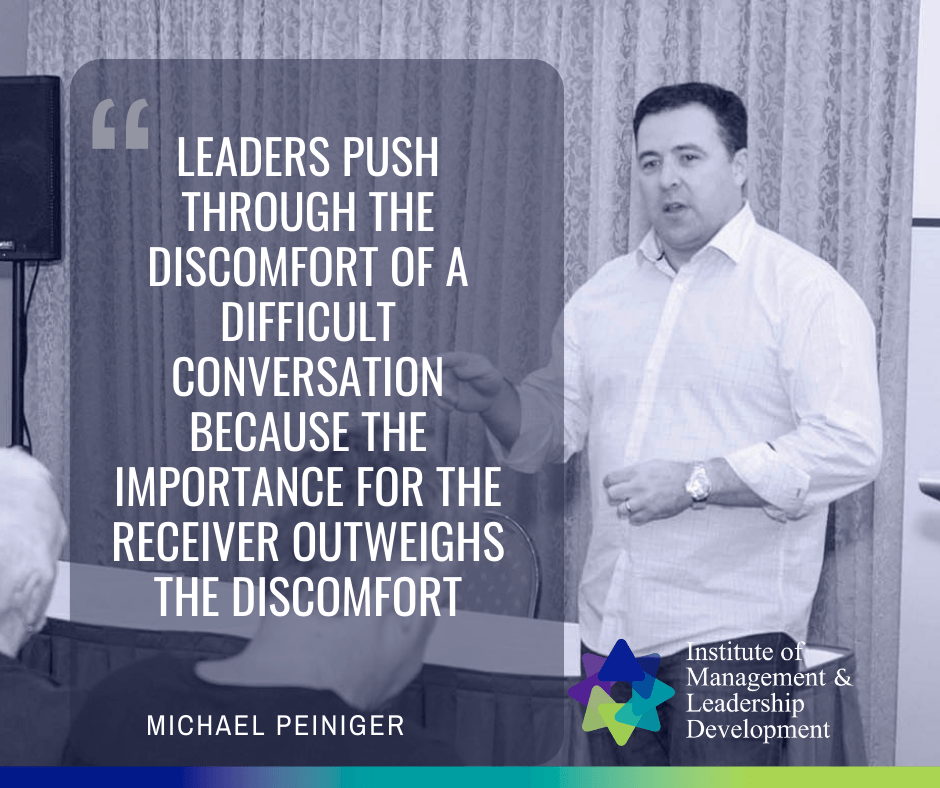Do your leaders shy away from having difficult conversations or hard conversations because they make them uncomfortable? What is the impact on you (and on the person you are avoiding) by letting this discomfort rule their behaviour?
No one likes difficult conversations. Good leaders understand the importance of them and the need to keep themselves, their team and their business on track – which sometimes involves a difficult conversation. Every person can ‘drift’ away from what is needed, and an open, clear and honest conversation regarding expectations and meeting them is often required.
Many leaders find these conversations uncomfortable – for themselves or for the other person – and so let the behaviour ‘drift’. The behaviour repeats, gets worse – so does the size of the conversation – so does the avoidance of the issue. Sound familiar?
Good leaders don’t like difficult conversations, but they accept the necessity of them and don’t shy away from their responsibility to have them.
#difficultconversations#leadership#coaching#managers#IMLD#developingleaders
https://www.linkedin.com/company/institutemanagementleadershipdevelopment/?viewAsMember=true
The Way Forward
If you struggle with difficult conversations but understand the importance of having them (for you and for your team members), it might be time to get in touch with an expert who can guide you through. Our Executive Coaches with extensively with leaders, managers and small business owners looking to improve their (and their teams) behaviour, with one aspect being how to prepare for a deliver a difficult conversation. Another way to perform better in difficult conversations is to attend one of our highly rated workshops:
Performance Management Essentials – for having difficult conversations within a structured or formal setting, or
Difficult Conversations In The Workplace for practical tips, solutions and practice
Related IMLD Posts and Articles:
Does Any Leader Like Having Difficult Conversations
Looking To Avoid Big, Difficult Conversations? Have More Small Ones
Only Practice Builds Confidence With Difficult Conversations



